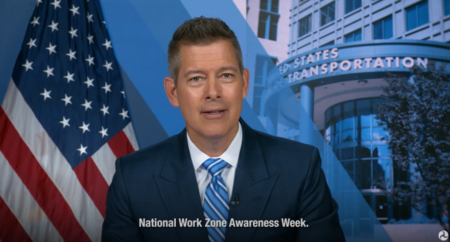The UK government has confirmed its ambition to see at least half of all new cars be ultra-low emission by 2030, as part of its plans to improve the country’s air quality and encourage the transition to widespread use of electric vehicles (EVs).
The government’s proposals are outlined in the Road to Zero Strategy, which sets out plans to enable a massive expansion of green infrastructure across the country, reduce emissions from the vehicles already on the UK’s roads, and drive the uptake of zero-emission cars, vans and trucks.
The government hopes that together, the measures will put the UK at the forefront of a global revolution in motoring and help to deliver cleaner air, a better environment, and a strong clean economy.
As set out in the government’s Air Quality Plan, the UK will end the sale of new conventional petrol and diesel cars and vans by 2040. The Road to Zero Strategy will build on this commitment and outlines how all layers of government will work alongside industry and other partners to enable the deployment of one of the world’s best EV infrastructure networks.
The Road to Zero Strategy is ‘technology-neutral’ and does not speculate on which form of propulsion might help to deliver the government’s 2040 mission. The government has already committed to investing £1.5bn (US$2bn) in ultra-low emission vehicles (ULEVs) by 2020, and the Road to Zero Strategy outlines a number of ambitious measures including:
A push for chargepoints to be installed in newly built homes and on new lampposts, potentially providing a massive expansion of the plug-in network; The launch of a £400m (US$531m) Charging Infrastructure Investment Fund to help accelerate the roll-out of charging infrastructure by providing funding to new and existing companies that produce and install charge points; Creating a new £40m (US$53m) program to develop and trial innovative, low-cost wireless and on-street charging technology; Providing up to £500 (US$664) for EV owners to put in a charge point in their home, plus an increase in the value of grants available to workplaces to install chargers; The extension of the Plug-In Car and Van Grants to at least October 2018 at current rates, and in some form until at least 2020, allowing consumers to make significant savings when purchasing a new EV; The launch of an Electric Vehicle Energy Taskforce to bring together the energy and automotive industries to plan for the increased demand on energy infrastructure from the use of EVs.
“The coming decades are going to be transformative for our motor industry, our national infrastructure, and the way we travel. We expect to see more change in the transport sector over the next 10 years than we have in the previous century,” explained Chris Grayling, Secretary of State for Transport.
“The Road to Zero Strategy sets out a clear path for Britain to be a world leader in the zero-emission revolution, ensuring that the UK has cleaner air, a better environment, and a stronger economy.”




